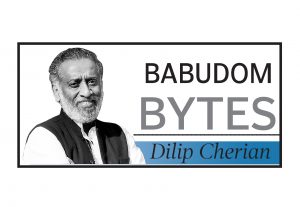Indefinite Tenure

There was a time when “superannuation” meant something. Now it’s just the date you pencil in until the next extension arrives. Union Home Secretary Govind Mohan is the latest to join the Great Indian Extension Club. He was due to retire in September 2025. Not anymore. He’s now staying on until August 2026. Or later.
It’s all very smooth and above board. The Appointments Committee of the Cabinet signs off, the paperwork proceeds, and another top officer avoids the retirement ritual. Extensions have now become more routine than retirements. The Cabinet Secretary lives on an annual renewal plan. Ravi Sinha of RAW, sadly, wasn’t so lucky. Parag Jain in RAW made it in time, thankfully.
Similarly, across states, it’s become a proud tradition. In West Bengal, Chief Secretaries rarely retire. They just acquire more titles. Others? Not so fortunate.
This brings us to an uncomfortable question. What about all the highly capable officers waiting their turn? It’s hard not to feel for them—the ones who played by the book, ticked all the boxes, and still didn’t make it. Maybe they were too junior by a month. Or too distant from Delhi. Or just unlucky.
Meanwhile, the extended family of babus marches on. Retirement is for the lesser mortals.
Soft power of coaching
It was only a matter of time before the parallel universe of IAS coaching centres collided messily with the real world of judicial process. Dr Vikas Divyakirti, the founder of Drishti IAS, has trained thousands to clear the world’s most grueling civil services exam. Now he finds himself learning the hard way about due process. From the other side of the table.
An Ajmer court has taken cognizance of a defamation complaint against him for remarks allegedly disparaging the judiciary in a video. It is a classroom-style monologue comparing judges and babus. Perhaps his tone was flippant, but it proved to be a tripwire for legal action.
Most know Drishti as a civil services production factory. Its founder isn’t merely a teacher; he’s a philosopher-king for lakhs of hopefuls. Coaching gurus like him are unofficial institution-builders. They shape attitudes, internalize hierarchies, and, as this case shows, occasionally overstep.
Divyakirti may not hold a post, but his cultural capital runs deep. His words carry further than some government circulars. And when you’re indirectly influencing the next generation of district collectors, it pays to measure your metaphors.
So, while the court decides the legal merits, the larger takeaway is clear: in the bureaucratic food chain, even the feeders must mind their diet. What’s said in jest in a classroom can echo dangerously in a courtroom. When perception is policy, that’s a lesson worth filing away.
One ticket, one spouse, no exceptions
There are few things in life more complex than Indian family trees, except, perhaps, government rules trying to keep up with them. Enter the Department of Personnel & Training (DoPT), which has just updated its Leave Travel Concession (LTC) guidelines with the kind of bureaucratic poetry only sarkari memos can deliver, a fresh July 4 circular clarifying who counts as “family” for LTC purposes. And tucked away in the officialese is a gem: “not more than one wife.”
You read that right. While listing those excluded from LTC benefits—parents-in-law, grandchildren of estranged daughters, and even grandparents—the circular slips in a little marital limit. Lest we leap to conclusions, this isn’t some bold new policy. It’s a reiteration, a clarification, a tightening of screws in response to RTIs and complaints about who’s eligible to tag along on sarkari-sponsored vacations. But the phrasing is classic bureaucracy-meets-blunt-truth.
It also inadvertently opens a window into the complex web of personal laws, family arrangements, and the Centre’s cautious dance around them. India allows for plural marriage under certain religious laws, but the state? The state prefers its travel parties nuclear, thank you very much. Humour aside, this is part of a larger challenge: our rules often lag behind the reality of modern relationships. Live-in partners, single parents, blended families—none of them sit neatly inside Rule 4 of the CCS (LTC) Rules, 1988.
By Dilip Cherian
News